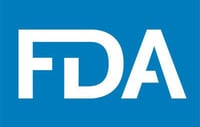Core deficits characteristic of adolescents with autism spectrum disorder (ASD), such as poor...
FDA Authorizes Marketing of New Aid to Diagnose Autism

Yesterday, the Food and Drug Administration (FDA) authorized marketing of a new device meant to help in the diagnosis of autism spectrum disorder (ASD), according to a news release. The Cognoa ASD Diagnosis Aid uses a machine learning algorithm to aid physicians when evaluating patients from 18 months through 5 years of age who are at risk of ASD.
According to the Centers for Disease Control and Prevention, ASD is estimated to affect 1 in 54 children in the United States. The disorder can be difficult to diagnose as symptoms can vary, which can delay treatment and early interventions. The average age of diagnosis is 4.3 years, according to the FDA.
“Autism spectrum disorder can delay a child’s physical, cognitive, and social development, including motor skill development, learning, communication, and interacting with others,” Jeff Shuren, M.D., J.D., director of the FDA’s Center for Devices and Radiological Health, said in the release. “The earlier ASD can be diagnosed, the more quickly intervention strategies and appropriate therapies can begin.”
The ASD Diagnosis Aid allows parents, caregivers, and health care professionals to input details about their children or patients, then the software processes the information to make a diagnosis. It consists of three components: a mobile app that allows parents and caregivers to upload videos of their children and answer questions about behaviors; a video analysis portal through which certified specialists view and analyze uploaded videos; and a portal for physicians and other health care professionals to answer questions about patients’ behavior problems, track information about them, and review the software’s diagnostic report. The device issues reports that the child is positive or negative for ASD to help determine a diagnosis or that there is insufficient information.
A study compared the device’s assessments of ASD diagnoses among 425 patients aged 18 months to 5 years against assessments made by a panel of clinical experts. The ASD Diagnosis Aid provided a positive or negative result for ASD for 32% of patients. The device matched assessments made by the panel of clinical experts for 81% of patients who tested positive and 98% of patients who tested negative.
According to the release, the device accurately made an ASD determination in 98.4% of patients with ASD and 78.9% of patients without the disorder. The device provided a false positive result in 15 out of 303 patients without ASD and a false negative in 1 out of 122 patients with ASD.
“The Cognoa ASD Diagnosis Aid is indicated as an aid in the diagnosis of ASD for patients 18 months through 5 years of age who are at risk of developmental delay based on concerns of a parent, caregiver, or health care provider. The device is not indicated for use as a stand-alone diagnostic device but as an adjunct to the diagnostic process,” the release concluded.
For related information, see the American Journal of Psychiatry article “Variable Emergence of Autism Spectrum Disorder Symptoms From Childhood to Early Adulthood.”






